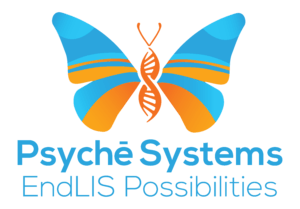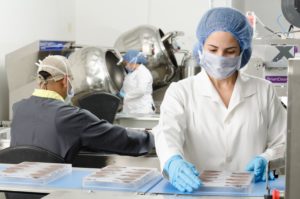Although cancer is not an inheritable disease, there are certain DNA patterns that may increase a person’s risk for cancer. Inherited genetic mutations are not guarantees that a person may develop cancer; however, DNA diagnostics can allow a person to exercise greater caution if they discover they are at greater risk for a certain type of cancer. For example, there are DNA diagnostics that can determine a person’s approximate risk for cancer. As a result, they may engage in more regular screening as prescribed by their doctor. This tactic allows patients to detect early warning signs of developing cancer, thus allowing earlier treatment and increasing their survival rates.
Here we will explore the role of DNA diagnostics in the fight against the more common cancer types. We will look at its impact on breast cancer, lung cancer, and colorectal cancers. There is a large list of cancers in which DNA diagnostics are applicable; however, breast, lung, and colorectal cancers are the three most prolific cancer types in the US.
What are DNA Diagnostics?
There are numerous ways in which a provider can perform DNA diagnostics. It can involve a cheek buccal swab, a blood draw, or a biopsy. These techniques involve looking at the nucleotides of a DNA strand. Different types of nucleotides are assigned different letters. These combinations form a variety of different types of DNA. Certain DNA combinations have been sequenced and cataloged and identified as potential mutative combinations.
Some of these mutations can be innocuous, others can be fatal, and some may fall somewhere in between.
There are three general types of DNA diagnostic tests.
- Sequencing all approximately 3 billion nucleotide pairs
- Exome sequencing
- Nucleotide polymorphism sequencing
A DNA diagnostic test can help determine your likelihood of developing a type of cancer. It can also diagnose whether or not you have cancer, discover if you have genes that you can pass to your children that will increase their risk of cancer, and can provide general guidance to your healthcare.
Breast Cancer
There are a variety of breast cancer types. They are commonly caused by carcinomas, also known as tumors. These tumors develop through mutations in tumor suppressor gene sequences. These genes exist to fix broken DNA, manage cell growth, and manage cell death. When these tumor suppressor gene sequences stop doing their job, it can result in tumor growth. For example, some types of tumor suppressor gene sequences are BRCA1, BRCA2, P53, and TP53.
DNA diagnostics for breast cancer have a number of approaches. One of those approaches involves sequencing a patient’s BRCA1 and BRCA2 genes. Identifying mutations in these genes can indicate an increased likelihood of developing breast cancer. A patient inherits DNA that mutates the BRCA genes. However, a mutation in these gene sequences is not a definitive confirmation that a person shall develop breast cancer. It is only an indicator of probability.
Lung Cancer
DNA diagnostics for lung cancer involve a blood draw or a biopsy from the possibly affected area. The majority of lung cancers are non-small cell lung cancers; this makes up for approximately 80%-85% of lung cancer cases in the US.
Lung cancer can attack your body in several different ways: epidermal growth factor receptors, KRAS proteins, creation of ALK proteins, ROS1 mutations, BRAF mutations, and more.
Based on the results of a patient’s biopsy or blood analysis, different types of drugs may be prescribed. Some mutations react positively for the patient if a mutation-specific drug is administered. This is why DNA diagnostics are crucial for patient treatment.
Additionally, DNA diagnostics can determine important information about the type of cancer a patient is dealing with. For example, an analysis of the cancer can show whether the cancer is at risk of returning. This can inform and guide a patient’s healthcare plan in the future as they work to avoid and screen for cancer.
Colorectal Cancer
Colorectal cancer covers several different types of cancer. This category covers any type of cancer that affects the different areas of the GI tract. For example, colon cancer, bowel cancer, and rectal cancer are all forms of colorectal cancer.
One of the newer methods used to screen for colorectal cancer is the collection of a stool sample. Fortunately for the patient, this is a noninvasive procedure and does not require drawing blood or having surgery to get a biopsy.
Alternatively, the medical provider can perform a colonoscopy. As a result, if polyps or tumors are detected, a biopsy may be performed to determine whether they are malignant or benign.
Some of the genetic code sequences that, if mutated, can increase the risk of or cause colorectal cancer are: MLH1, MSH2, MSH6, APC, PMS2, EPCAM, Ras, EGFR (Erb-B1), Erb – B2, TGFalfa, TGF-beta 1.
Additionally, there are also tumor suppressor genes that, similar to breast cancer, play a role in colorectal cancer. As a result, if those genes are mutated, malignant or benign tumors may begin to grow.
It is common for people above the age of 50 to get regular colonoscopies. This is the well-known method to screen for abnormalities in the colorectal system. However, if a patient is eligible for a stool DNA screening and prefers that method, their doctor may recommend it. It is obviously far less invasive than a colonoscopy. However, if a positive result returns, it will warrant further investigation and research.
Contact Psychē Medical Laboratory Software for DNA Diagnostics Software
The fight against cancer is one which has touched many people in society. With the continuous advances in medical technology, Psychē Medical is ready to provide your lab with DNA diagnostic software that will help your patients.
Cancer treatment continues to advance, thanks to the minds we have working in the medical field. As a result, new and advanced medical treatment that addresses genetic mutations is becoming available. However, in order for patients to get those medications, fast and accurate DNA diagnostic tools are necessary. Additionally, in order to reduce the likelihood of patients having to deal with cancer in the first place, DNA screening to determine cancer likelihood is another important tool for any diagnostic laboratory.
If you would like a consultation to integrate DNA diagnostic software from Psychē Medical, contact us today.


